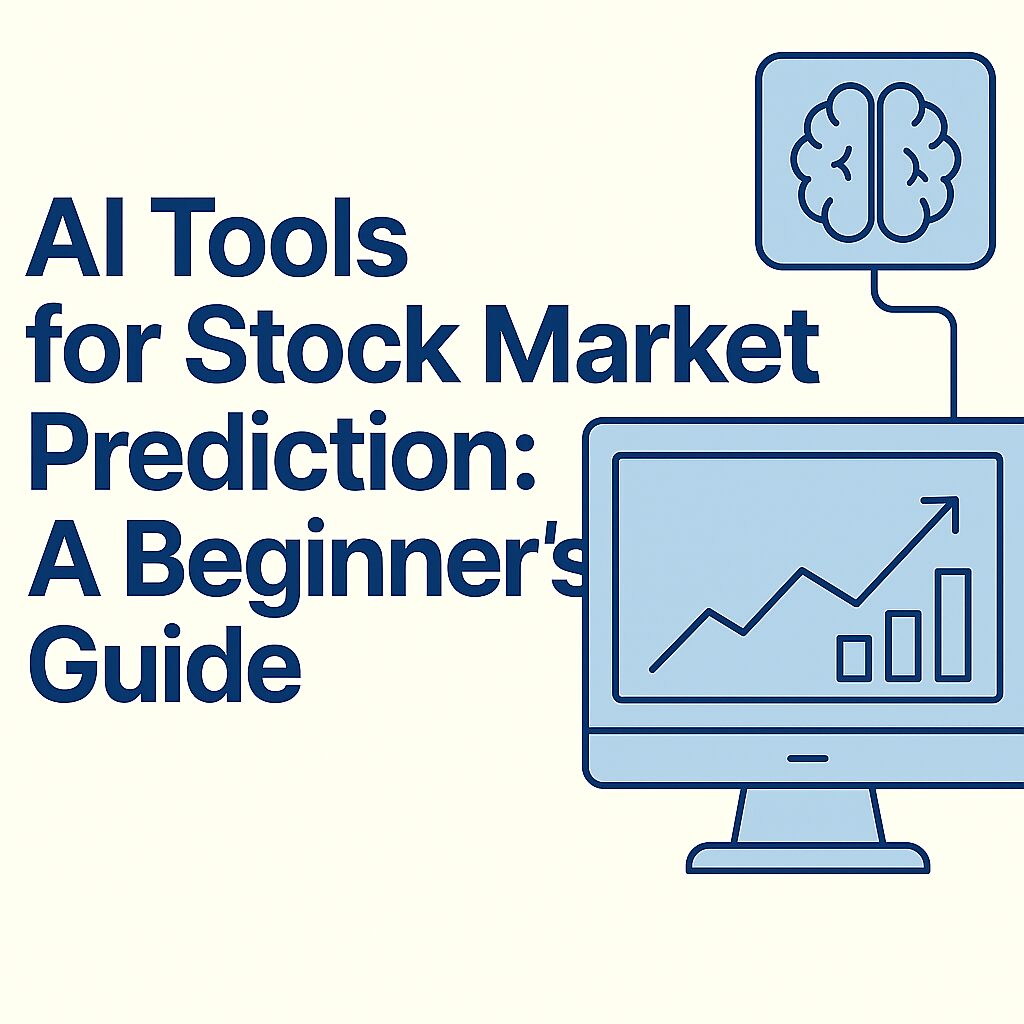Introduction
The stock market is complex, driven by numerous factors including economic trends, investor sentiment, and global events. AI-powered stock prediction tools leverage machine learning, data analysis, and predictive modeling to provide investors with smarter insights. Whether you’re a beginner or an experienced trader, AI can help identify patterns, forecast market movements, and optimize investment decisions.
This guide explores how AI tools enhance stock market predictions, structured with SEO-friendly formatting to improve visibility and search rankings.
1. Why AI is Transforming Stock Market Predictions
Traditional stock analysis relies on historical data, economic indicators, and investor intuition. AI improves this process by automating data collection, detecting trends, and making predictive calculations with enhanced accuracy.
Key Benefits of AI-Powered Stock Market Prediction
- Automated Data Processing & Market Insights – AI rapidly analyzes stock trends.
- Machine Learning-Based Pattern Recognition – AI identifies profitable trading opportunities.
- Real-Time Market Forecasting & Risk Assessment – AI predicts fluctuations using historical and live data.
- Sentiment Analysis for Investor Behavior – AI assesses social media and news sentiment affecting stocks.
- Portfolio Optimization & AI-Driven Trading Strategies – AI refines investment decisions for better returns.
AI-driven stock prediction tools help investors make informed decisions while minimizing risks.
2. Core AI Technologies for Stock Market Prediction
AI stock market platforms rely on automation, deep learning, and predictive algorithms to improve forecasting.
Essential AI Technologies for Stock Market Analysis
- Machine Learning for Trend Prediction – AI learns historical market movements and predicts future shifts.
- Natural Language Processing (NLP) for News & Sentiment Analysis – AI evaluates financial news and investor sentiment.
- Neural Networks for Market Simulation – AI models potential trading scenarios and outcomes.
- Automated Data Mining & Big Data Processing – AI gathers and refines stock market insights.
- AI-Powered Trading Bots for Real-Time Execution – AI executes trades based on predictive analysis.
These technologies enhance stock market forecasting efficiency and accuracy.
3. Step-by-Step Guide to Using AI for Stock Market Predictions
Implementing AI for stock market analysis requires structured data collection, algorithm selection, and risk assessment.
Steps for AI Stock Market Prediction Tool Development
- Define Stock Prediction Objectives – Identify whether AI will analyze trends, optimize portfolios, or refine trading strategies.
- Collect & Organize Stock Market Data – AI models require historical prices, trading volumes, and economic indicators.
- Train AI Models for Market Analysis – AI should learn from market behavior and investor sentiment.
- Integrate AI with Stock Trading Platforms – AI must sync with trading software for automated execution.
- Enable AI-Powered Risk Assessment & Investment Strategies – AI should refine decision-making for better profits.
- Monitor & Optimize AI Accuracy Over Time – AI models should evolve with financial trends.
This structured approach enhances stock market predictions and trading efficiency.
4. SEO Optimization for AI Stock Market Prediction Platforms
SEO strategies improve search visibility and user engagement for AI stock prediction tools.
Best SEO Practices for AI-Powered Stock Market Tools
- Keyword Optimization – Use terms like “AI stock prediction,” “machine learning for trading,” and “smart stock forecasting.”
- Financial Case Studies & Success Reports – Publish insights showcasing AI-powered trading accuracy.
- Mobile-Friendly & Cloud-Based Trading Compatibility – Ensure AI stock tools work across digital platforms.
- Collaborations with Financial Experts & Investors – Strengthen credibility by partnering with stock analysts.
- Optimized Metadata & Structured Content Formatting – Improve rankings with refined headings and search descriptions.
SEO-focused strategies enhance visibility and trust in AI stock prediction solutions.
5. Improving AI Stock Market Prediction for Long-Term Success
AI-powered stock market forecasting requires continuous updates to remain accurate.
Metrics for AI Stock Prediction Optimization
- Market Prediction Accuracy & Trend Validation – AI must refine forecasting models based on real-time market shifts.
- Risk Assessment & Loss Minimization – AI should prioritize profitable strategies and reduce risks.
- Investor Sentiment Analysis Refinements – AI must evaluate financial news for enhanced forecasting.
- Scalability for Various Stock Markets & Trading Conditions – AI should adapt to international markets.
- Compliance & Ethical AI Trading Standards – AI stock prediction tools must adhere to regulatory policies.
Regular updates ensure AI-driven stock prediction remains effective and trustworthy.
Conclusion
AI-powered stock market prediction tools optimize trading strategies, risk assessment, and financial forecasting. By integrating machine learning, NLP, and predictive analytics, investors can make informed decisions with higher accuracy.

